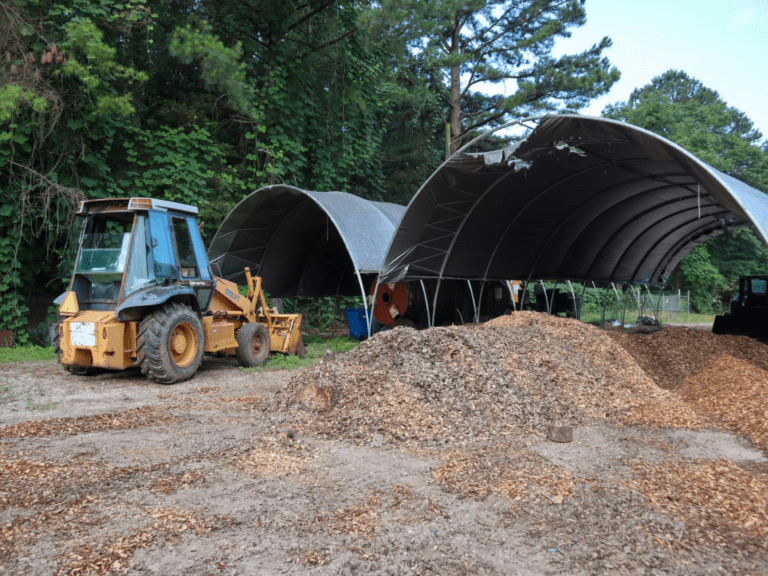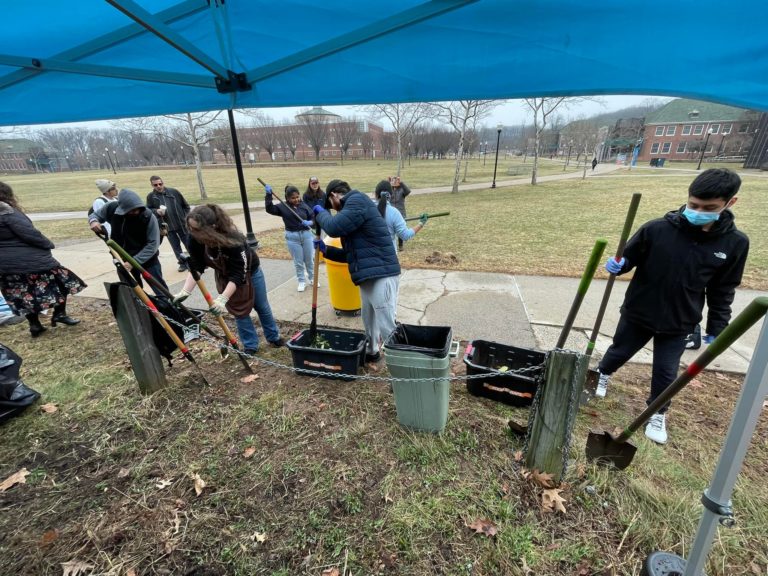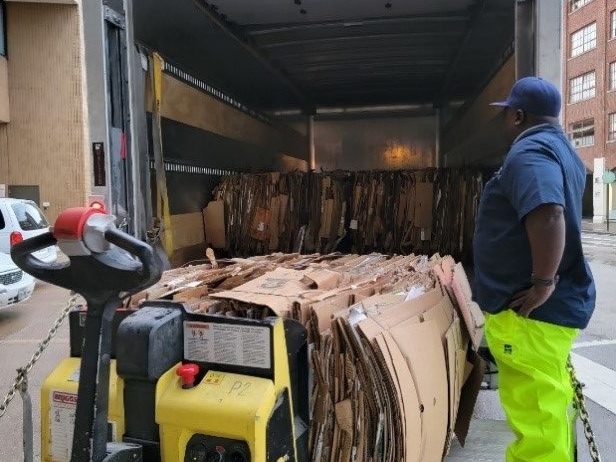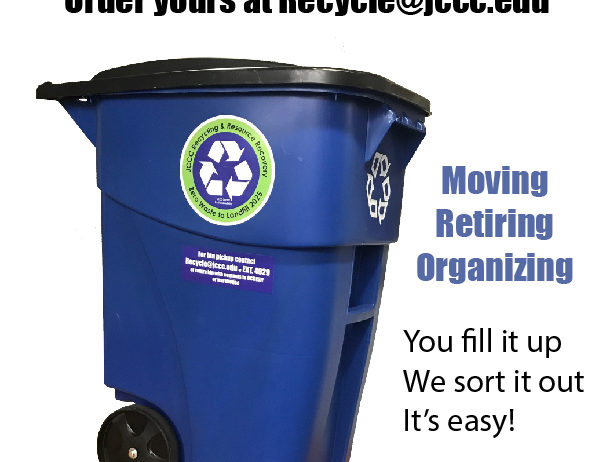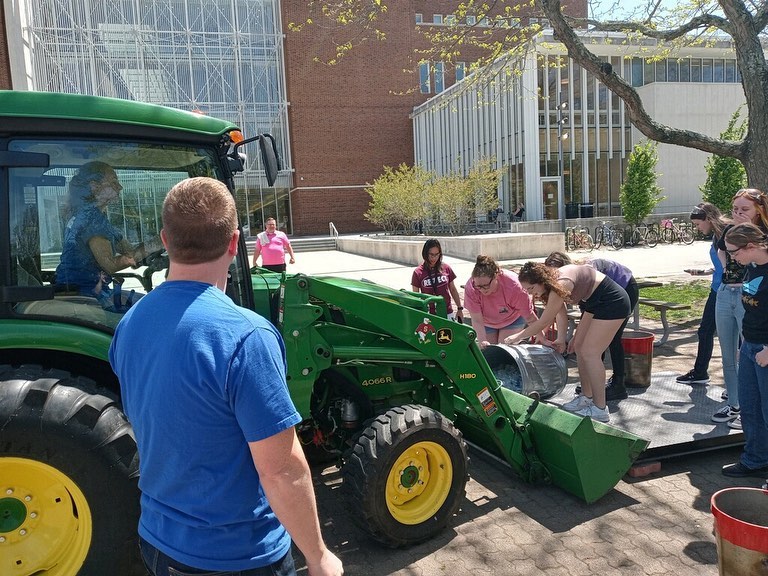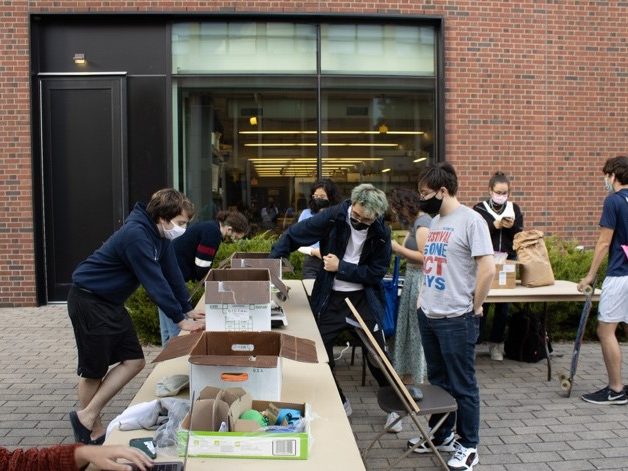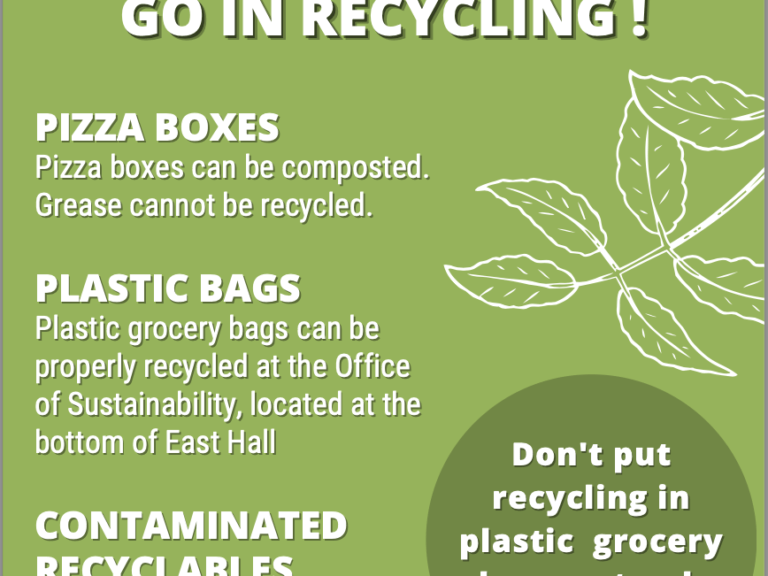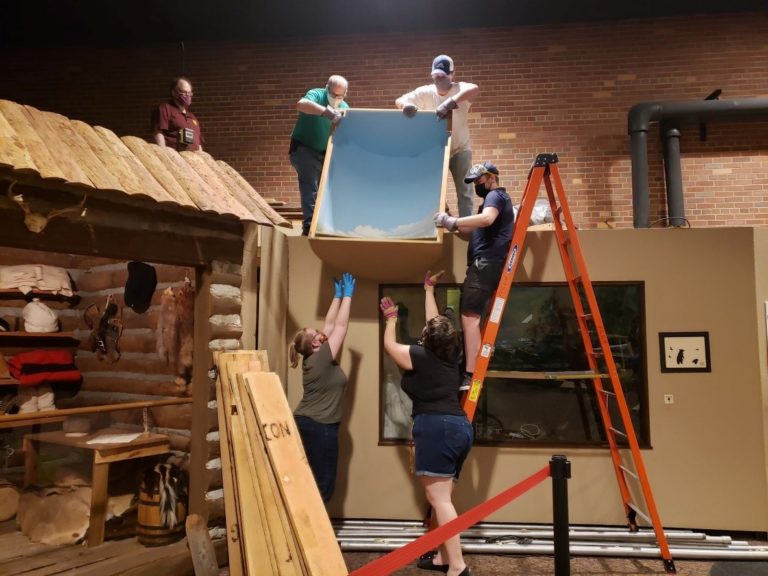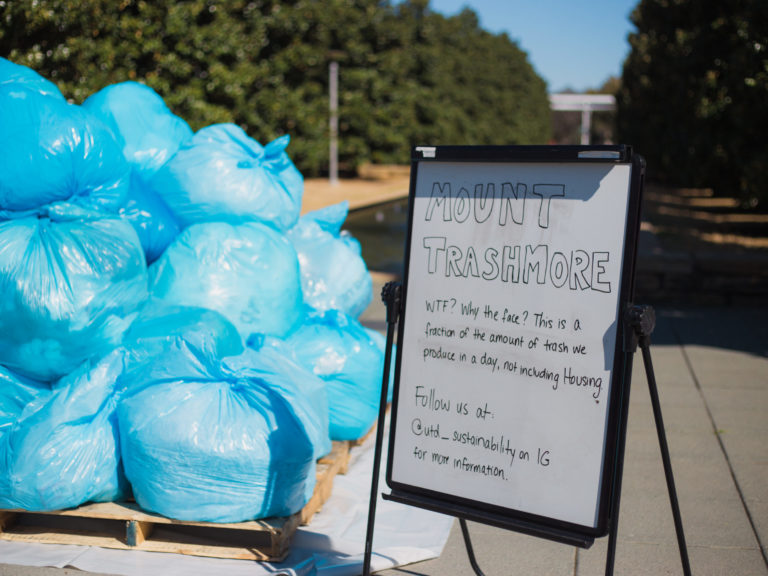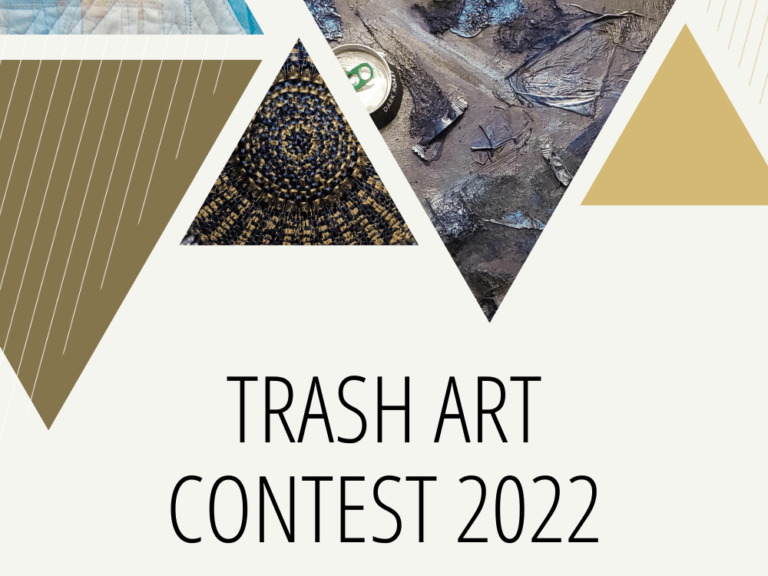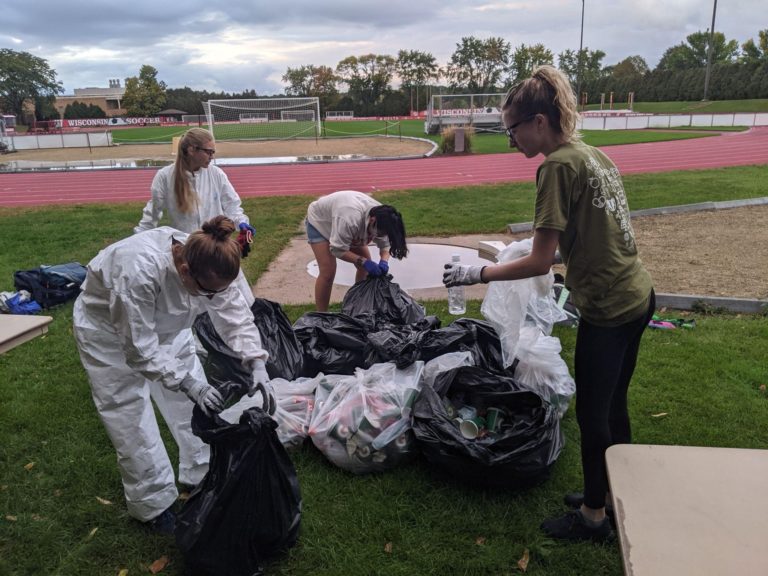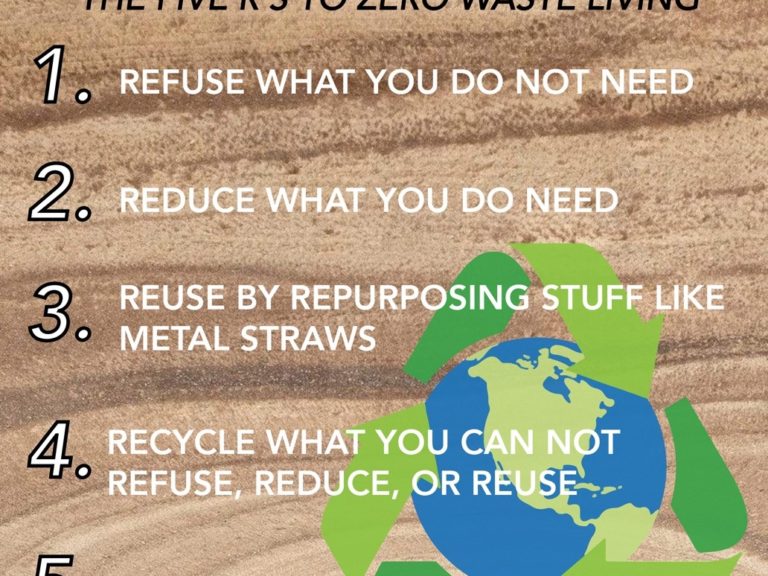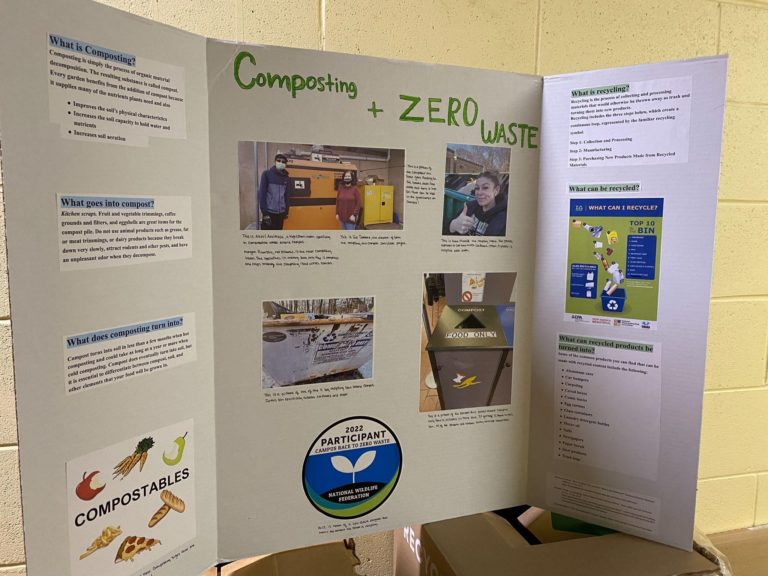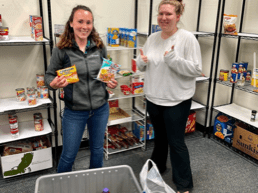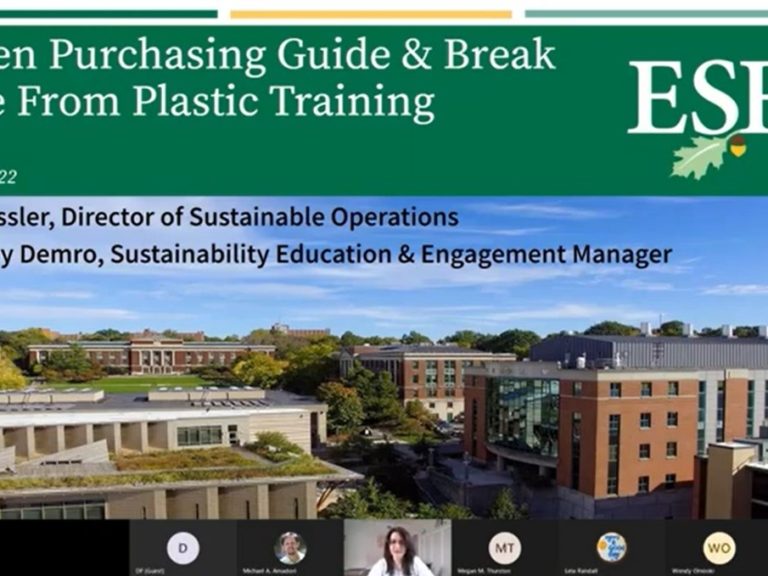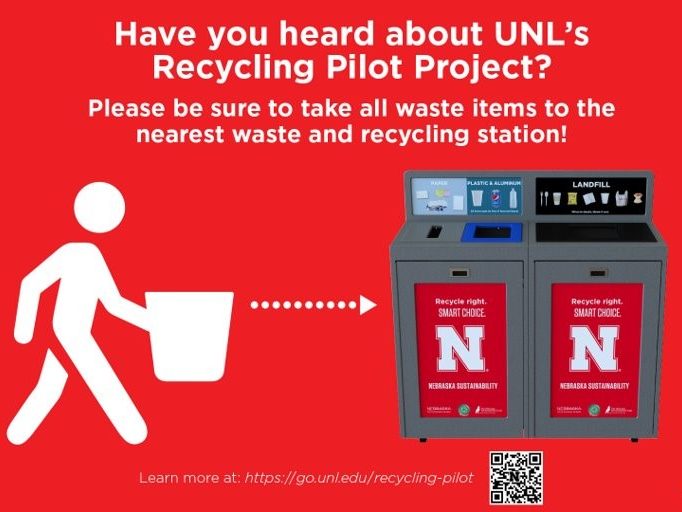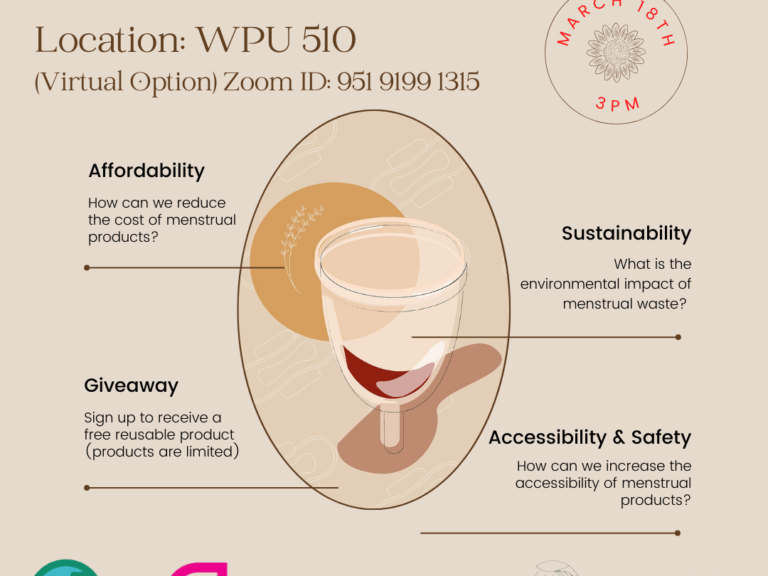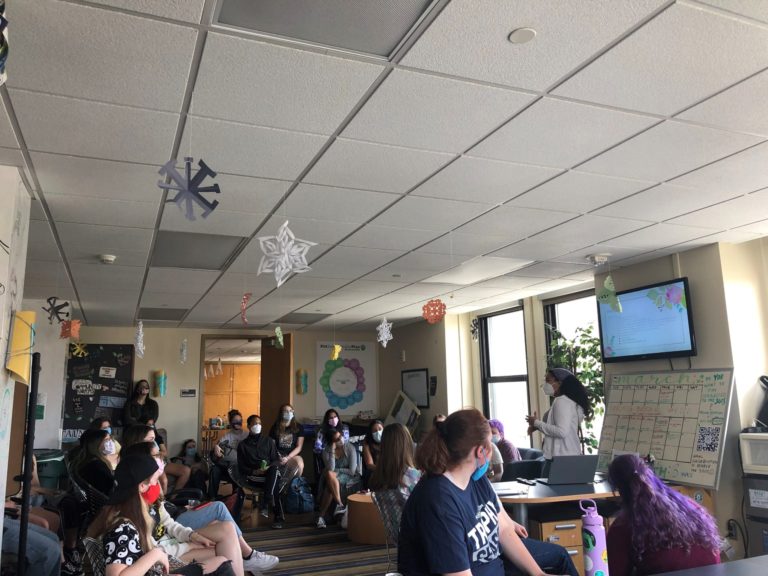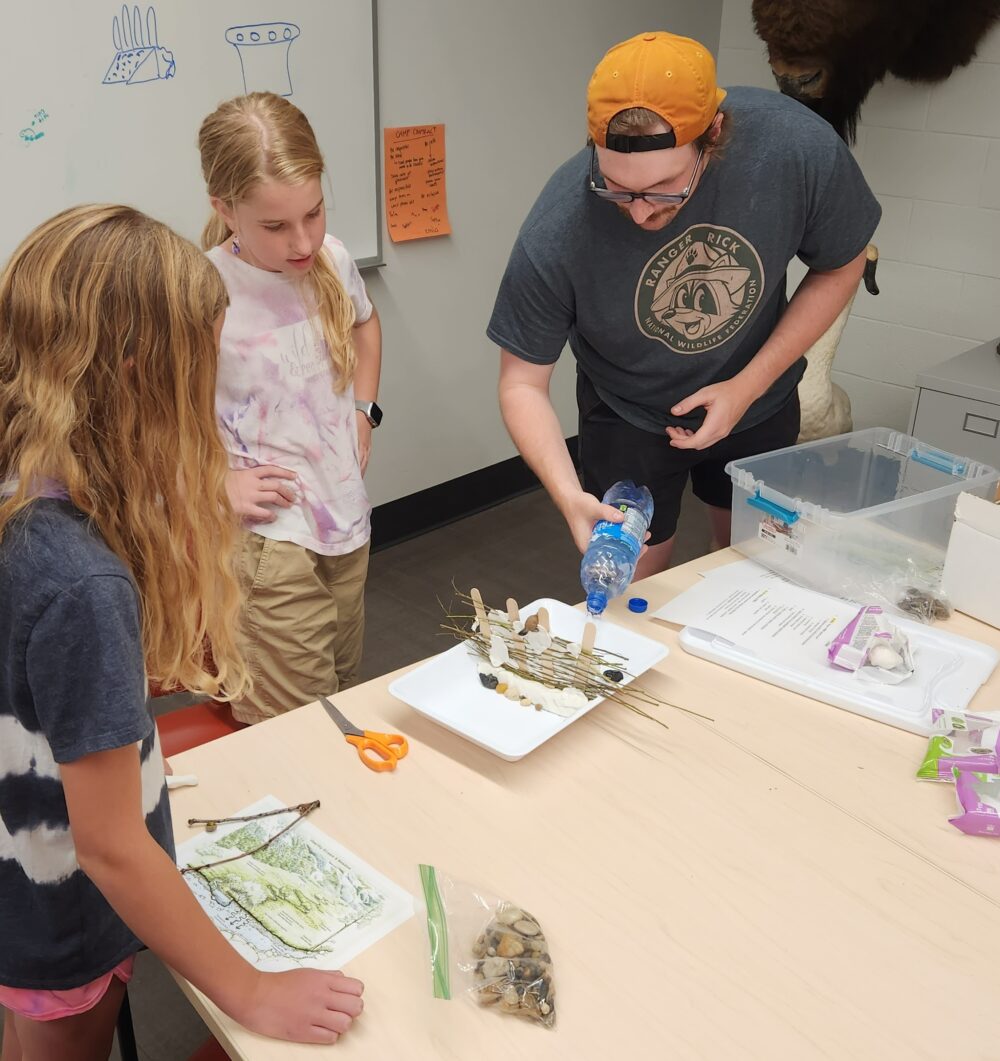We have much more to do and your continued support is needed now more than ever.
Campus Waste Minimization: Strategies From the 2022 Campus Race to Zero Waste
College and university partners design and implement creative and strategic waste minimization practices
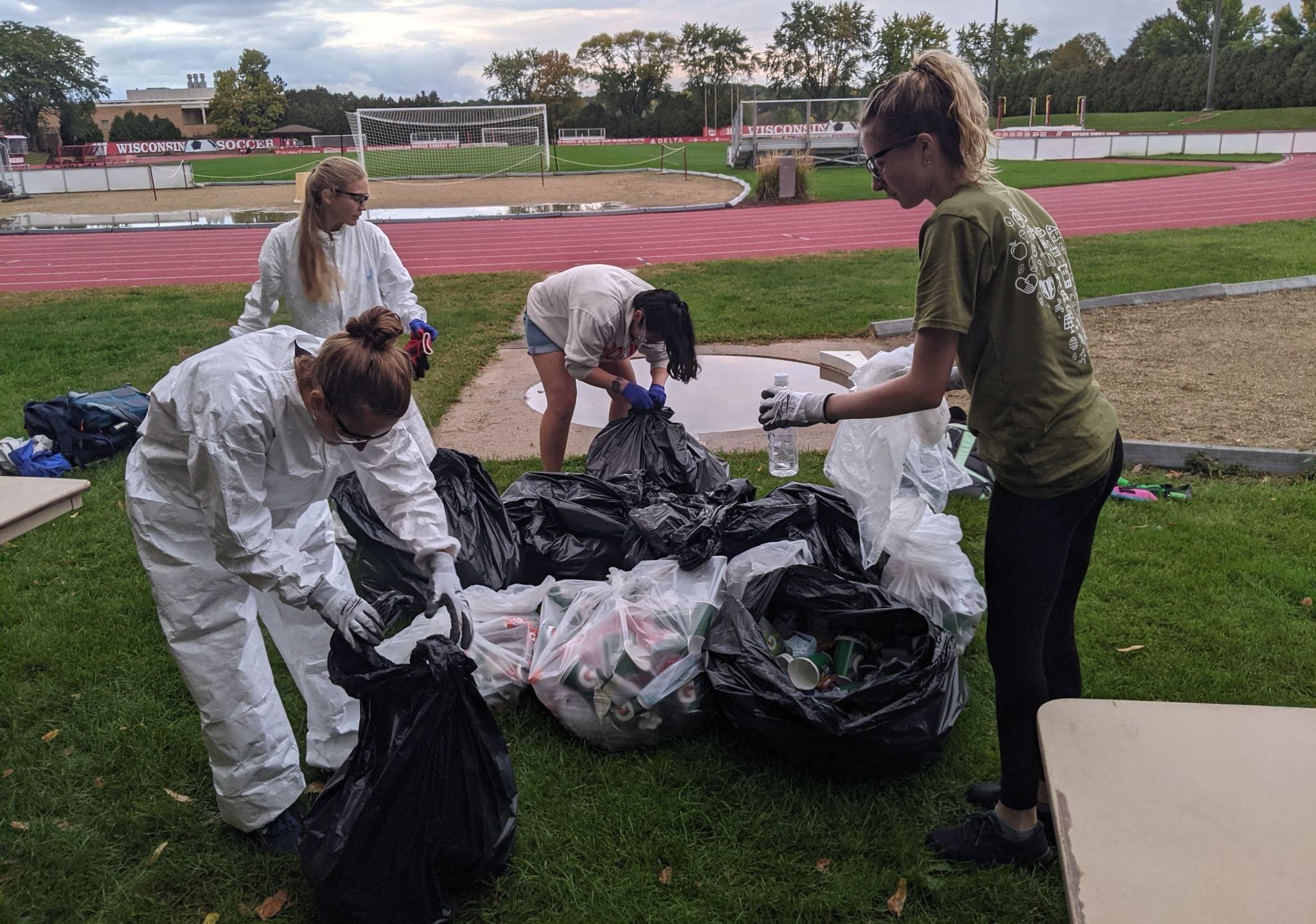
Despite the challenges colleges and universities faced this year due to the pandemic, campuses were committed to relaunching and strengthening initiatives to engage students, faculty, and staff in advancing waste minimization and zero waste efforts on campus.
During the 2022 Campus Race to Zero Waste competition, campus participants donated, composted and recycled 27.9 million pounds of waste, keeping more than 200 million single-use plastic containers out of the landfill. As part of the annual competition, each year the Campus Race to Zero Waste (formerly RecycleMania) program calls for best practice case studies from campuses across the U.S. and Canada to showcase programs and strategies in waste minimization, food waste reduction, and education and awareness.
The case study resource is a great opportunity to gain recognition for campus efforts to reduce waste and to share helpful information for campuses that are working on similar efforts. Winners are recognized in four categories: waste minimization, food waste reduction, education and awareness, and summary of waste minimization efforts over a year or more. Judging is based on criteria including creativity, transferability (how easily could the initiative be replicated), and measurable impact.
We are excited to announce the winners of the 2022 Campus Race to Zero Waste Case Study Competition.
2022 Campus Race to Zero Waste Case Study Competition Winners
Waste Minimization Winner
Carnegie Mellon University’s Fix-it Fair Mending Workshop repairs items and teaches attendees how to mend clothing, resulting in reducing waste by keeping these items out of the landfill. (Pennsylvania)
Food Waste Reduction Winner
Chapman University increases awareness about post-consumer waste by collecting all the uneaten food from Randall Dining Commons for a lunch period and weighing it (California).
Education and Awareness Winner
University of Pittsburgh hosts the Zero Waste Period program to advance menstrual equity on campus, sharing information about the physical and environmental health aspects of period products. (Pennsylvania)
Summary of Waste Reduction Efforts Winner (efforts over more than one year)
University of Nebraska Lincoln designs and implements a pilot project focused on standardizing recycling efforts on campus to reduce waste and improve recycling. (Nebraska)
All 2022 Case Studies
Waste Minimization
- Carnegie Mellon University’s Fix-it Fair Mending Workshop repairs items and teaches attendees how to mend clothing, resulting in reducing waste by keeping these items out of the landfill. (Pennsylvania)
- College of Staten Island promotes recycling on our campus and reduces campus waste by composting dining services pre-consumer waste. (New York)
- Dallas College focuses on three areas for the 2022 Campus Race to Zero Waste Competition: Student and Public Education, Zero Waste Infrastructure, and E-Waste Events. (Texas)
- Johnson County Community College reduces mixed office waste and surplus from office moves and retirements. (Kansas)
- Macalester College’s Fix It All Free For All is an event put on by students that promotes sustainable practices, builds community, and diverts items from landfills. (Minnesota)
- Salisbury University focuses to reduce the amount of volume entering the landfill from student move-out week. (Maryland)
- University of Nebraska Lincoln designs and implements a pilot project focused on standardizing recycling efforts on campus to reduce waste and improve recycling. (Nebraska)
Food Waste Reduction
- Chapman University increases awareness about post-consumer waste by collecting all the uneaten food from Randall Dining Commons for a lunch period and weighing it. (California)
- Clemson University’s Organics Recovery program began as a student initiative and has expanded into a multi-departmental effort to capture organic waste from dining halls, sports arenas, academic buildings, and student housing. (South Carolina)
Education and Awareness
- Appalachian State University reduces contamination in dorm recycling and compost bins through targeted education, better signs and more convenient locations. (North Carolina)
- Central Michigan University’s Museum Studies Program students disassembles old displays and recycles them into new exhibits at the University Museum, gaining valuable experience in sustainable practices. (Michigan)
- Marywood University educates students, faculty, and staff on waste reduction and recycling during the spring 2022 semester.
- Raritan Valley Community College records and analyzes the compost and recycling trends on campus and educates staff and students on proper composting and recycling habits. (New Jersey)
- SUNY College of Environmental Science and Forestry engages campus stakeholders to create and implement SUNY’s Green Purchasing and Break Free From Plastic Policy and associated Green Purchasing Guide. (New York)
- The University of Texas at Dallas leads an education and awareness campaign through a series of volunteer events that provide resources and engagement opportunities to students. (Texas)
- University of Pittsburgh hosts the Zero Waste Period program to advance menstrual equity on campus, sharing information about the physical and environmental health aspects of period products. (Pennsylvania)
- University of St. Thomas educates the campus public about the importance and benefits of reuse. (Minnesota)
- University of Washington hosts a Trash Art Contest for the campus community members to raise awareness about waste impacts on the environment.
- University of Wisconsin-Madison’s Office of Sustainability Green Athletics team conducts waste audits at soccer games to assess the effectiveness of intervention methods on contamination rates.
Check out the 2022 Campus Race to Zero Waste case studies.
Check out the final results of the 2022 Campus Race to Zero Waste competition.
The 2023 Campus Race to Zero Waste competition is open for registration, learn more at www.CampusRacetoZeroWaste.org
About Campus Race to Zero Waste
Campus Race to Zero Waste – formerly known as RecycleMania – is the nation’s premier waste reduction and recycling competition among colleges and universities, managed by National Wildlife Federation, and governed by RecycleMania, Inc.
Campus Race to Zero Waste has been helping campuses minimize waste and improve their reuse and recycling efforts, since its launch in 2001. Today it is the nation’s premier waste reduction competition among colleges and universities, in partnership with the National Wildlife Federation. To date, over 1,100 colleges and universities in the U.S. and Canada have participated in the Campus Race to Zero Waste program, diverting more than 1,100 million pounds of waste through minimization efforts, donation, reuse, composting, and recycling. Through these efforts, campuses have also prevented the release of nearly 1.68 million metric tons of carbon dioxide equivalent, which is comparable to removing over 346,000 gas engine passenger vehicles from the road for one year.


